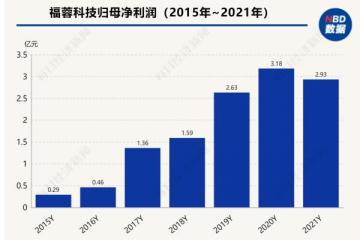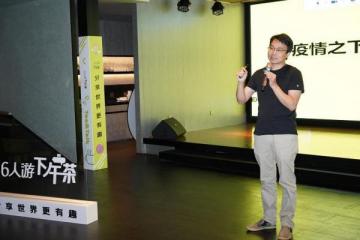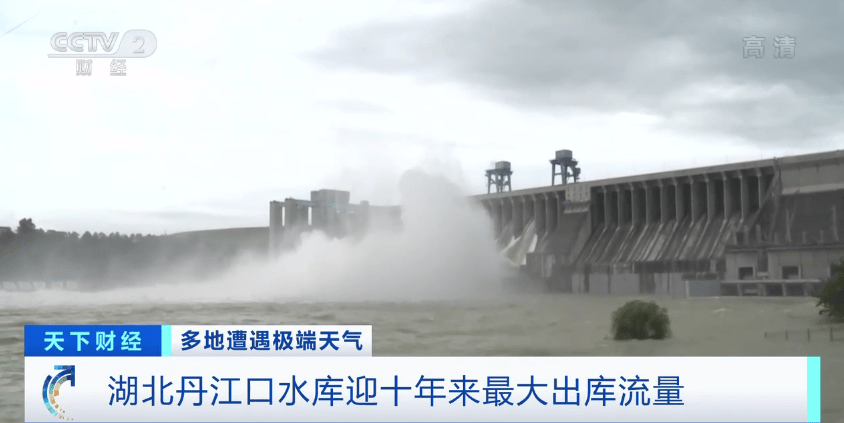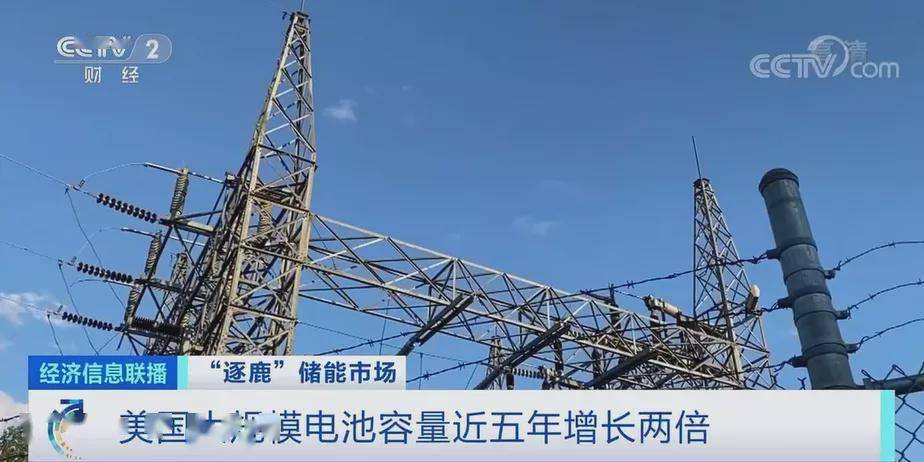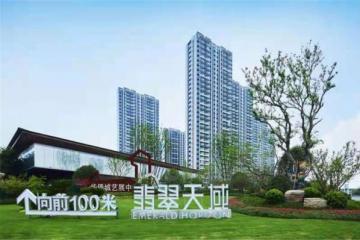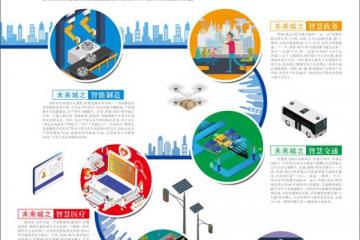SFCMarketsandFinance丨PakornPeetathaw
Global money is pouring into Southeast Asian stocks amid the Fed's policy shift. Overseas investments have now been flowing into Southeast Asia for the fifth consecutive week, and the MSCI ASEAN Index is approaching its highest level since April 2022.
Brokers have taken note of this trend. In September, Goldman Sachs upgraded its rating on Thai stocks to "market allocation" from "underweight." One of the most active and largest markets in Southeast Asia, the Stock Exchange of Thailand has raised $15 billion over the past five years, the highest in the region.
In recent years, SET has actively attracted foreign investment and promoted cross-border cooperation. So, how is the cooperation between the capital markets of China and Thailand evolving? What are your thoughts and plans on deepening the financial market connectivity between the two countries? Pakorn Peetathawatchai, President of the Stock Exchange of Thailand, shared his perspectives on these questions in an exclusive interview with SFC.
“We truly believe that the Shanghai-Hong Kong and Shenzhen-Hong Kong Connect are very effective ways to increase Thai exposure to China,” Dr. Pakorn noted in the interview.
Furthermore, Dr. Pakorn mentioned the need for stronger relationships with brokers in China and more diverse products. “Chinese intermediaries are interested in DRs or ETFs, and those are the areas we will focus on with all the Chinese agents, such as HKEX, the Shenzhen Stock Exchange, and the Shanghai Stock Exchange,” he said.
SFC Markets and Finance: Thailand's SET index is down slightly thisyear. For now, global funds are still favouring Thai stocks, How do you see the volatility of the Thai stock market so far this year? How does global capital see the Thai stock market?
Pakorn Peetathawatchai: I would say during the past few years, our index has been going down quite significantly due to the effects of many industries in our economy, for example, tourism, hotels and the well-being of businesses. Also, during the past few years, we had a few more issues that affected our economy quite significantly like the stability of the government, and the impact of the geopolitics from either Russia and Ukraine or the Middle East, those factors have affected the Thai economy quite significantly. And you can notice that our GDP growth has been going down quite a lot. Nowadays, we have a growth of around 1.5% to 2%, which is very low compared to our history. That is why when you look at the corporate earnings, the index of the Thai Stock Exchange has certainly been affected by those factors. However, when you look at this year’s economy, we start to see a lot of recovery. You start to see the number of tourists coming up. Since the beginning of the year until August, we have roughly more than 21 million people coming to the country already. And we expect that at the end of the year, we should have something like 35, 36 million people coming in which is quite a lot when you compare to our population number, we have 67 million people. So when we have almost half of the population coming as tourists. Certainly, it will stimulate the economy.
Secondly, when you look at our politics, it starts to become more stable. The new government will form up and things start to be clear and certain on how the government gonna run the country, which it's not that different from the previous one, but be a more comprehensive plan. So, in that case, you will start to see stimulus and you will start to see a lot of expenditure from the government that certainly would help the economy in the third and fourth quarters this year.
Lastly, when you look at the number of exports, the growth of exports in Thailand is the highest of many years in July with roughly 15% year-on-year growth. So, those are the things that start to ignite the economy back and the company starts to reflect that earning performance on that. We just had an announcement on the earnings performance of the Thai-listed companies, and this is the first time our earnings growth has exceeded 10% year on year since COVID-19.
So, I would say that all these factors start to push the Thai economy back into the recovery mode, and also on the earnings growth of the Thai-listed company. That's why recently you just mentioned rightly, that you see a lot of foreign flows into the market. You look at the baht which is the Thai currency. The strengthening of the Thai currency has been remarkable within one month. I think the Thai baht has been stronger by 6% compared to the US dollar.
So, these are the things that I would say. We start to see the positive factors in the Thai economy, and certainly in the Thai-listed company performance, which will reflect in the index performance this year.
SFC Markets and Finance: Are you considering doing more to further attract foreign companies to participate in the Thai capital market?
Pakorn Peetathawatchai: Certainly, I think at the moment, the very important thing that we need to do is to give more information to the investors. Because in the past, they might not realize that the Thai economy has started to recover. Now, we will see the evidence of those.
And also, we need to start to have more products that not just promote things that we need to have like the following listing that we now provide to the primary listing, secondary listing, holding company listing to REIT and infrastructure fund. Those are the things that would attract more foreign entities to respond in Thailand. And vice versa, we need to have more foreign products within the market so that investors, not just in Thailand, but also in the region can invest in the exposure abroad. That's why we have the depositary receipt, the ETF and many things, the digital asset and the LIVE platform. Those are things that certainly we would do more to promote the Thai market.
Other than that, when you look at relocation opportunities, this is the right time to attract foreign entities to do the foreign direct investment in Thailand, because Thailand is very neutral to all these political sides. So, if they want to do the relocation, Thailand would be very good on their behalf. We have a lot of good incentives from the Board of Investment, and certainly, our well-being economy is one of the best in the world.
Lastly, when you look at the sustainability practice of the Thai company, we need to promote that so that foreign investors and foreign entities understand that doing business in Thailand is not just the short term. It's more like a sustainable working, sustainable investment or sustainable business. So those are the things that certainly we would use to attract more interest in the Thai capital market.
SFC Markets and Finance: The Stock Exchange of Thailand and the Singapore Exchange plan to sell more depositary receipts from both countries to facilitate stock trading on both sides of the border. How effective is this initiative so far? Apart from SGX, do the SETand other exchanges in Southeast Asia have such financial connectivity plansand what are the expected results?
Pakorn Peetathawatchai: Thailand and Singapore have been talking a lot about how we can connect the two markets so that investors in both markets can access more listed companies. Not just Singapore, we talk to other ASEAN countries. We talk to Malaysia, Indonesia, Vietnam and the Philippines. So, in the future, we expect to see more collaboration like this with other exchanges. At the moment we have a relationship with Singapore and now we have 17 depositary receipts cross-listing between the two markets. We have eight Thai names in Singapore and we have nine Singapore names in our exchange. So, you can see that it's very popular and many Thai new investors are investing in this product to diversify their investment portfolio.
Not just that we have a Thailand-Singapore cross-listing. We have more depositary receipts from Vietnam, China Japan, the US and Europe. Now we have something like 47 DRs already that are listed in the Stock Exchange of Thailand. We have 16 Chinese exposures listed on the Thai exchange already, but most of these stocks and ETFs are from HKEX. We hope that in the future, we will have more relationships for more cooperation with Shanghai and Shenzhen. But at the moment it's mostly from Hong Kong.
SFC Markets and Finance: In the past, the Stock Exchange of Thailand and the Shenzhen Stock Exchange have cooperated closely, What are the next development plans?
Pakorn Peetathawatchai: The thing is that we need to look at what is missing between Thailand and China. When you look at Thailand and China's business relationship, you will see a lot of foreign direct investment. You will see a lot of companies doing business with each other. However, the thing that is missing.
First, how can we get Chinese companies to raise funds in Thailand and vice versa? How Thai companies are raising funds in China? Second, how can we get Chinese investors to invest in Thailand and Thai investors to invest in China more? These are the thing that should be regional connected or global connected. This is the issue why we started with the roadshow in China and roadshow of the China in Thailand. Because we want to attract more of the interest on both fundraisers and also the investors. This is the first thing that's why we have the roadshow with Shenzhen. That's why we have the roadshow in Hong Kong cooperating with HKEX because we truly believe that the Shanghai-Hong Kong and Shenzhen-Hong Kong connect are very effective ways to get Thai exposure to China.
However, I would say we don’t have much success yet. Either it is a starting point, or we need to work more on that. We need to do more roadshows. We need to have more relationships with the brokers in China and vice versa. And we need to have more products. Chinese intermediaries would like to do DR or ETF, those are the trade things that we will concentrate on with all the Chinese agents, like HKEX, Shenzhen Stock Exchange and Shanghai Stock Exchange.
How can promote these things? So that people start to recognize the opportunity to invest in both markets. Also on our side, we understand that Thailand is quite a small market. Our economy is quite small compared to China. That's why we would like to work more with our ASEAN exchanges to become like the ASEAN asset class that Chinese investors or Chinese fundraisers would be more interested in this region. But I would say the process has been developing. You will see more and more things in this area.
SFC Markets and Finance: What are your thoughts and plans for deepening the connectivity between the financial markets of China and Thailand? Is there any new progress at present?
Pakorn Peetathawatchai: I think we need to get our intermediary to get into the picture. Last week, we had a very good opportunity to receive a visit from a very big Chinese intermediary. And we discussed many things. And I think we need to start to have a partnership across borders. You need to get the intermediary to get into the picture. It cannot be just exchanges. We need to have people who are doing this to get into the picture. We need to get the first intermediary. And then the intermediary brings in the fundraisers and the investors. And then we will try to get a project to start up.
I would say the first project might be either the cross-listing or the product listing of the ETF or DRs of Chinese companies, Chinese funds, or Thai companies or Thai funds into the other exchanges. I would say that would be the easiest way to have connectivity between the two exchanges. We don't have to do direct exchanges to exchange connectivity anymore. We can have the product connectivity starting first, and then we should have more of activities like roadshows or other things.
SFC Markets and Finance: The government is launching future investment projects under the "Ignite Thailand" plan, related to this theSecurities Commission of Thailand recently launched a digital asset regulatory sandbox, can you tell us about this measure in detail?
Pakorn Peetathawatchai: The government policy has been very clear on how can we build up the Thai economy over what we all have. When you look at the Thai traditional economy, we are very strong in many sectors. We are very strong in manufacturing. We are very strong in tourism. We are very strong in the services. The thing that the government want to do more is that they want to focus on the areas. The digital economy, tourism, wellness and medical, agriculture and food, aviation, logistics, future mobility, and financial hub. Those are the things that you mentioned. And to me, the financial hub is the thing that the Thai Stock Exchange can support the government significantly. We can certainly try to promote all these in the way that the newly listed companies would like to do the fundraising. We would be able to attract the intermediary coming into the country. However, we cannot do it alone. We need to work with many government entities to build the capability so that Thailand would be able to attract a new generation of people to come in and work in Thailand as a financial hub. We already quite succeed in attracting programmers from all over the world to work in Thailand.
Now, I think what we need to do is that we need to provide more platforms for the financial people to come in and work in Thailand. In doing so, I would say we are quite ready because when you look at the funding needed for this country, we have a very good bond market. We have a very good fixed-income market. We have a good banking market, and also a capital market. So each new business wants to do the fundraising in Thailand. They can easily do it. The banks at the moment have a capital adequacy ratio of almost 20%. They can lend much more if the economy picks up. The bond market is very strong at the moment.
When you look at the size of the market is almost as big as the equity market. And for our stock market, we have been raising funds of roughly U.S.$15 billion during the past 5 years. The number of the IPO is the largest in Southeast Asia. We are in the top ten or top five in Asia, in fundraising during the past 5 years. So, I would say the Thai capital market, the Thai Stock Exchange, would be a very positive pusher for the government's plan to build the financial hub in Thailand.
SFC Markets and Finance: This year marks the third year of your development strategy of the SEC and what are the next plans and goals?
Pakorn Peetathawatchai: I would say at the moment from what you see, trust and confidence are very important things and we have been doing a lot of issues and measures in that matter.
So next year, in my opinion, It gonna come back to a few things. The first would be the carbon credit product. It's so important that now we need to start to develop this carbon credit market in Thailand. Either to the exchange or to the OTC but it has to be connected to the regional or the global market. Because carbon credit products are not for the domestic market, it is for global expansion. If companies want to do business across borders, they need to look into how to manage carbon dioxide emissions.
The second thing would be how we gonna develop our digital asset exchange to supplement the traditional assets that we have I would say these are the two important things that we need to look into. And it might not be mutually exclusive between the two. It might be very dependent on digital assets and the carbon credit. Those are the two areas that certainly we will look into very intensely next year.
策划:于晓娜
监制:施诗
拍摄:李群
新媒体统筹:丁青云 曾婷芳 赖禧 曾昭发
海外运营监制: 黄燕淑
海外运营内容统筹: 黄子豪
海外运营编辑:庄欢 吴婉婕 龙李华 张伟韬
出品:南方财经全媒体集团
郑重声明:此文内容为本网站转载企业宣传资讯,目的在于传播更多信息,与本站立场无关。仅供读者参考,并请自行核实相关内容。



